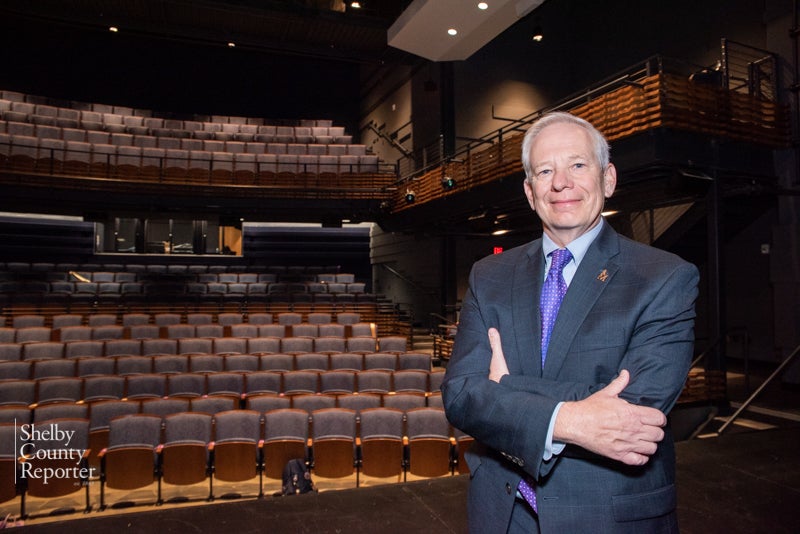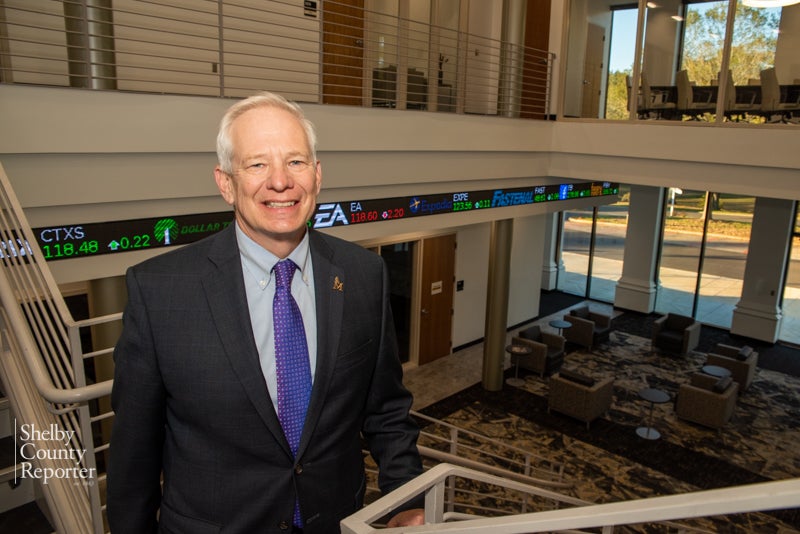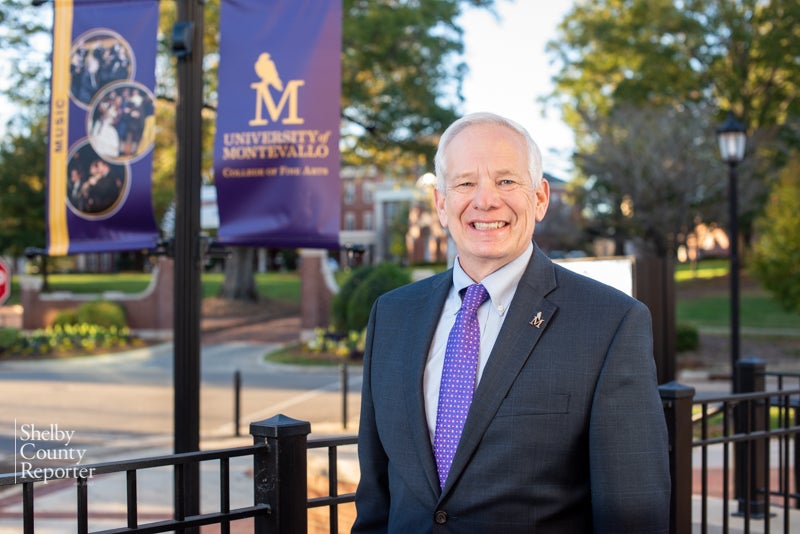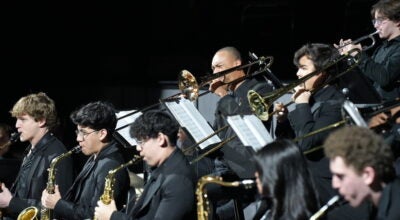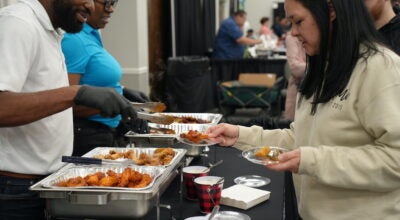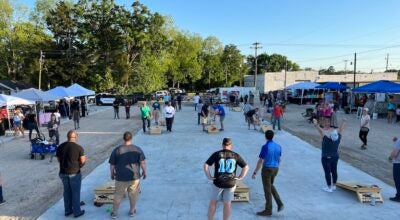PROFILE: All about relationships
Published 11:39 am Tuesday, March 30, 2021
|
Getting your Trinity Audio player ready...
|
By MADOLINE MARKHAM / Magazine Editor
Scott Dillard is the kind of person who’d never ask that an article be written about him. He speaks softly but with confidence and a calm demeanor. And he isn’t about fanfare; he’d rather work behind the scenes and not necessarily have anyone know what he’s done.
“I think we need more people like that,” says Greg Foust, the recently retired minister of discipleship at Asbury United Methodist Church, where Scott is a member. “He models what you ought to be.”
As his friend Phillip Romei describes Scott, he’s patient and understanding, fatherly and dependable, authentic and trustworthy. Scott’s too humble to describe himself in those ways, but those traits come alive if you ask about what he is quick to talk about—his passion for his work at the University of Montevallo as the vice president for advancement and external affairs.
While the bulk of his job relates to fundraising, Scott’s more likely to talk about relationships than numbers. His colleagues will tell you about how a seven-year “It’s About Family” campaign he led with a goal of $20 million raised nearly $36.5 million to benefit scholarships, campus improvements, faculty development and more. But Scott will tell you about people.
He will tell you about having lunch with an alumna from the 1950s who had a dream for a new performing arts center on campus to replace a nearly 160-year-old building that was never designed for plays but had been serving that purpose, and how he connected her with the right people that, several years later, gave way to a $20 million new Center for the Arts. He’s quick to note that 80 percent of spaces in that center are named for a donor, from the art gallery to classrooms to the black box theatre, all inside a bricked building that is now seamlessly woven into the stately collegiate master plan the Olmsted brothers—as in the architects of New York City’s Central Park—designed for the campus more than 100 years ago.
He will also tell you about Michael E. Stephens, an alumnus who generously donated the money for a new business school building at Montevallo when he passed away, and how his own older son Thomas is taking classes in that building now as a junior business major at the university. (It seems Thomas picked up leadership skills from his dad Scott, as president of the Student Government Association and the Interfraternity Council, plus a volunteer with the Best Buddies program. “He’s really made a way for himself too, so I try to get out of his way,” Scott says, noting both his pride in his son and that he tries to give him space to find his own way on campus too.)
Scott will also tell you about Mike and Donna Granger and their family and how they wanted to fund a new counseling center facility that they built into an old house on campus. “It was a small fundraising opportunity, but as far as the impact on campus it was huge,” Scott says. “Mental health counseling is so important on college campuses.”
He will also tell you about Dr. Rick Cummings, a Montevallo alumnus from 1970s who went on to get a PhD at Johns Hopkins University and is now researching treatment and potential cure for sickle cell anemia, and how Montevallo students can intern for him up at Harvard Medical School. And he’ll tell you about the recent alumni who completed that internship and who now are in medical school or working on their PhD in a scientific field.
Amongst Scott’s stories, there are, however, three numbers he perhaps most likes to tout. The first is 115—the number of new scholarships of the 400 total in campus history that were started as part of that goal-surpassing campaign. The second is 6,000—the number of first-time donors out of the 10,000 who had given to the campaign, the vast majority of which are alumni.
And the third is 50 percent—the portion of the school’s population who are first-generation college students, just like he was at Western Kentucky University. He sees how a school like Montevallo is key to their experience. “You are in this family of folks who are making sure you are having every opportunity to succeed,” he says.
As you can tell, those numbers are all about the people they represent—and making the university as student-focused as it can be.
For Scott the key to supporting students through his work, first, is listening to a potential donor, preferably face-to-face, and then the “magic” of bridging the gap to connect someone’s interest with what is happening at the university. If they were on scholarship, they might want to do that for another student. If they loved College Night, they might want to support it.
University of Montevallo President Dr. John Stewart is quick to speak to the influence on the other side of Scott’s relationships—himself. “When you meet Scott, it doesn’t take long to realize that you are in the presence of someone with rare gifts and strong ethics,” Stewart says. “He has an innate ability to put himself in other people’s shoes and see things from multiple perspectives. He’s empathetic and a terrific listener.”
When Stewart has to make a difficult decision, professionally or even personally, he often wants to talk to Scott, and he knows that many others look to him in the same way. “The wide variety of influential people in our state who rely on him for wise counsel,” he says. “From elected officials to corporate CEOs to philanthropist and community leaders, they all look to Scott for sound advice and accurate information.”
And that’s not even getting to his family life. Scott has been married to his high school sweetheart, Laura, a school psychologist by training, for more than 30 years, and they adopted both Thomas and his younger brother Jackson, a junior at Briarwood Christian School, from Guatemala. The journey of fatherhood—including coaching Jackson’s baseball teams for the past 10 years—is one he treasures. “We have never been anything but amazed about how God could have created two children 2,000 miles from us that were absolutely meant to be our children,” Scott says. “They are remarkable young men, and I know God has big plans for both of them.” Phillip Romei is quick to note too that Thomas and Jackson are always polite, patient, willing to help and dependable—just like their parents.
Whether he’s coaching baseball, meeting with a prospective donor or serving his church, Scott is doing so with integrity and positivity. It’s not something he touts, but Stewart has high praise of it. “When I met Congressman John Lewis in an elevator in DC, I knew I was in the presence of greatness, and it’s not about him,” Stewart says. “It’s like that with Scott. It’s never about him. It’s always about the people he serves.”


